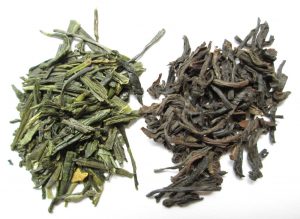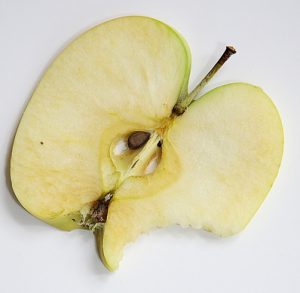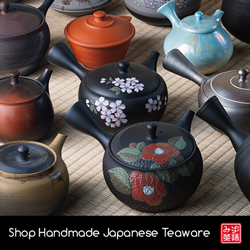 Have you ever wondered why some fruits and vegetables begin to turn brown after they’re cut or bruised? This is oxidation at work.
Have you ever wondered why some fruits and vegetables begin to turn brown after they’re cut or bruised? This is oxidation at work.
Oxidation is important in tea, because it’s responsible for the formation of many taste and aroma compounds.
Black tea is highly oxidized, while green tea isn’t. You’ll find that these teas smell and taste quite different from each other.

What is oxidation?
In chemical terms, oxidation happens when a reactant loses electrons in a reaction. This usually involves oxygen, hence the name.
For example, rust happens as iron is oxidized in the presence of water and oxygen.
In the case of tea leaves, the oxidation we’re dealing with is enzymatic oxidation. The leave’s enzymes, the most important being polyphenol oxidase (PPO), react with oxygen and begin to break down the polyphenols present in the tea leaves.
In fact, PPO is the reason why a lot of fruits begin to brown. When you cut an apple, you break cells, which in turn allow this enzyme to oxidize phenolic compounds. The process ends with the formation of compounds that have the characteristic brown color.
Why are there enzymes inside plant tissue?
You’re probably wondering what the enzymes are doing inside the tea leaves in the first place. Let’s quickly see what enzymes are.
Enzymes are biological molecules that accelerate specific chemical reactions necessary for life, and not just in plants but in all living things. Without enzymes, chemical reactions would be too slow, making life impossible.
Cyanide, for example, is an enzyme inhibitor. It is poisonous because it prevents cellular respiration, by inhibiting an enzyme in the mitochondria called cytochrome c oxidase.
Oxidation in tea
Remember that catechin is a polyphenol? Catechins in tea leaves oxidize too, eventually forming theaflavins and thearubigins. That’s why black tea has a lower amount of catechins than green tea.
An interesting question is why catechin, and especially EGCG, oxidize so easily given that it is a powerful antioxidant. The answer is that an antioxidant works by oxidizing itself!
Oxidation is an important aspect regarding the different types of tea, such as white tea, green tea, and black tea. I would like to tell you more about the types of tea but it would be too long to include here. I’ll cover that topic in the next post.
Sources:
http://www.food-info.net/uk/colour/enzymaticbrowning.htm
http://www.scientificamerican.com/article.cfm?id=experts-why-cut-apples-turn-brown





